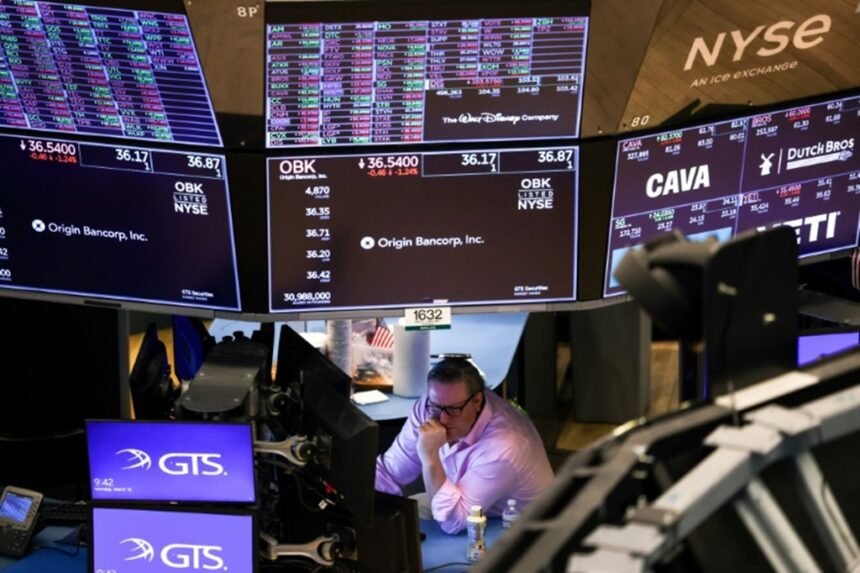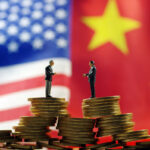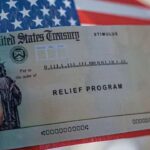Experts warn of an impending recession as the US economy begins to show signs of strain. As the US rolls out its new tariff policies, warnings of a potential downturn in the world’s largest economy have grown louder.
The US Fed recently raised its core inflation projections for 2025 to 2.8 percent from 2.5 percent, and lowered its GDP growth forecast to 1.7 percent from 2.1 percent. Trump has also declined to dismiss the possibility that the US economy could enter a recession this year and that inflation could rise, according to media reports on March 9.
According to official data, inflation in February 2025 was 4.1%, significantly higher than the Fed’s target of 2%. This ongoing strain is putting pressure on American families and escalating concerns about the recession.
A deteriorating labour market is another warning sign for the US economy, according to economists. With just 120,000 new jobs added in February of 2025, job growth slowed significantly. From last year’s low of 3.8%, unemployment has risen noticeably to 4.3%. Companies are reducing their hiring plans out of caution in the face of uncertainty.
Stanford University economist Dr. Emily Carter stated, “We’re seeing cracks in the foundation.” “Declining consumer confidence and high borrowing costs may soon push us over the edge.”
According to recent University of Michigan surveys, consumer sentiment has indeed fallen. Credit card balances are reaching all-time highs, which is making the issue worse. As is customary before economic downturns, a large number of Americans are taking out loans to pay for necessities.
Global Supply Chains
Once a pillar of stability, the housing market is currently under tremendous strain as well. The skyrocketing mortgage rates above 7% have priced out first-time purchasers and halted sales. According to official statistics, home construction has decreased to its lowest level since the pandemic. Jobs in construction and related industries are at risk due to this slowdown.
Experts claim that disruptions in global supply chains are making the US economy’s problems worse. The cost of imported goods, such as apparel and electronics, has increased due to ongoing tensions with China. Higher tariffs and shipping delays are driving up prices even more, which affects both consumers and businesses.
With recent weeks seeing erratic stock markets, Wall Street has not been immune to the growing uneasiness. As a result of investor concerns about a downturn, the S&P 500 has lost 8% since January. Tech behemoths like Apple and Tesla have experienced steep drops, which have caused broader indices to fall.
According to New York-based financial analyst Mark Reynolds, “the markets are pricing in a recession.” “Any negative news could lead to a larger sell-off in the near future, and investors are jittery.”
The Trump administration has played down claims of a recession, citing strong GDP growth in 2024. Despite the ongoing rollout of $1 trillion in infrastructure spending, officials maintain that the economy is robust. However, detractors claim that this optimism ignores growing risks on several fronts.
Recession Spillovers
A recession in the US would have a profound impact on the already precarious global economy. America’s demand for exports is crucial to Europe, which is struggling with its own energy crisis. If the US falters, emerging markets that are heavily indebted in dollars may experience defaults.
A US recession could have “significant spillovers,” according to the International Monetary Fund. The IMF lowered its 2025 growth prediction for the global economy in its most recent report. It claimed that any economic setback by the United States would disproportionately affect developing countries.
With cautious policy changes, some analysts are still optimistic that the US can avoid a full-blown recession. If inflation declines in the upcoming months, the Fed may decide to lower interest rates. However, time may be running out as consumer power declines and geopolitical tensions increase.
As economic indicators show warning signs, Americans are currently preparing for harder times. Fearing a decline in consumer spending, small businesses are already feeling the effects of rising costs. Uncertain of what 2025 holds, households are making budget cuts.
With the stakes high, the world keeps a close eye on the US as it negotiates this uncharted territory. A recession here could change the stability of the entire world, not just the domestic situation. Getting the economy back on track is a difficult task for policymakers.
Reporting by Global Times, and South China Morning Post contributed to this article.
Related News:
Trump to Impose 25% Tariffs on Autos, Semiconductors, and Pharmaceuticals

Geoff Thomas is an award winning journalist known for his sharp insights and no-nonsense reporting style. Over the years he has worked for Reuters and the Canadian Press covering everything from political scandals to human interest stories. He brings a clear and direct approach to his work.














